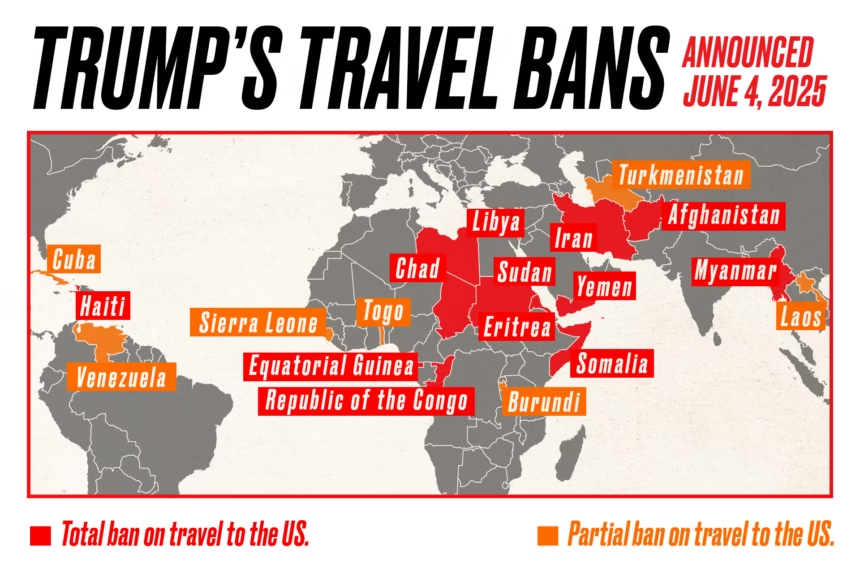After an ambiguous communication from Haiti’s Foreign Affairs Department last week, the country’s Presidential Transitional Council (CPT) has delivered its formal stance on the United States’ newly implemented entry limitations. These restrictions affect multiple nationalities, including Haitians, based on security-related concerns.
The Haitian presidency released an official statement on Wednesday, recognizing the policy while highlighting worries about its sweeping application.
“While acknowledging each nation’s sovereign authority to protect its borders, the CPT expresses apprehension regarding this policy, which could impact all Haitians indiscriminately,” the declaration states.
American officials have defended the measure citing escalating border security issues. However, Haitian leadership considers this action potentially damaging to the deep-rooted cultural, economic, and historic connections between these two pioneering American republics. The Council expresses particular worry about the enduring diplomatic and social implications for Haitian communities overseas, who already encounter integration challenges.
The CPT’s statement emphasizes current initiatives to enhance domestic security, strengthen border management, and upgrade national identification procedures. The Presidency indicates these actions form part of a comprehensive plan to address armed factions and international criminal organizations within Haiti.
Enhancing legal systems and monitoring illegal money movements are also listed among the Council’s key objectives.
Demonstrating its dedication to global partnership, the CPT revealed plans to begin technical consultations with American officials, seeking Haiti’s removal from the restriction list and safeguarding Haitian citizens’ basic rights.
“The CPT maintains its dedication to productive bilateral cooperation,” the statement continues, emphasizing the importance of balanced approaches amid regional tensions.
The Presidency concluded by emphasizing the historical foundation of Haiti-U.S. relations, built on mutual principles of freedom, human worth, and economic growth, expressing optimism that these ideals will shape future discussions.
“Driven by these principles, we assert our commitment to surmounting obstacles and creating an improved future,” the statement ends.
Considering the Haitian diaspora’s essential contribution to the nation’s economy and its role as a vital international bridge, the CPT’s approach appears measured, diplomatic, and solution-oriented, as Haiti works to reestablish its position in an increasingly security-conscious and restrictive global landscape.






